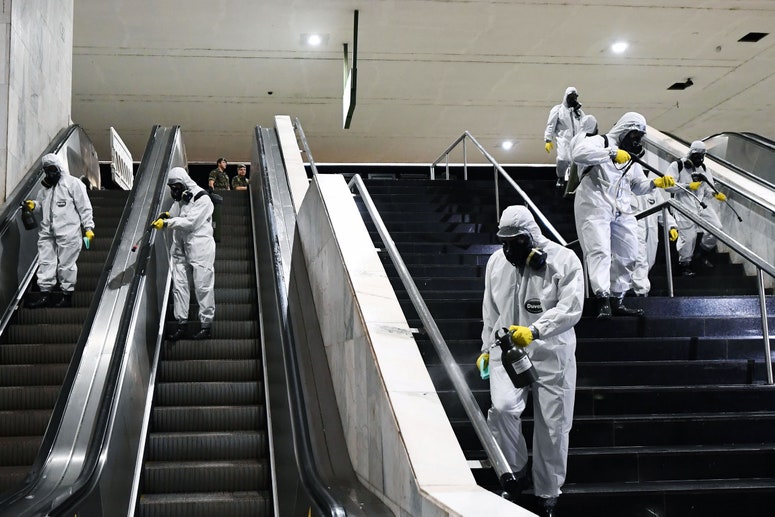The first study, posted on June 3 by Supriya Garikipati from the University of Liverpool and a colleague, did try to distinguish between women leaders in governing and less powerful roles. While they didn’t find a significant difference in Covid-19 cases and deaths based on leaders’ gender, they did find an effect after using modeling to match pairs of male- and female-led countries with similarly sized elderly populations, health care expenditures, and openness to tourism, among other factors. They don’t report enough data to assess the result, though—not even which 19 countries they judged to be “female-led.” This is the kind of study that badly needs to have a protocol set down, and available for scrutiny, before running any analyses at all. In the absence of that step, a reader would never know whether the choice of factors in the final model was changed midstream or whether unfavorable analyses were done but not reported. What’s more, with so many factors in their analyses of this small group of countries, the risk of coincidental associations is perilously high; and, at the same time, other issues that could be important weren’t included in the model at all, such as whether a country is an island nation.
The second study, posted June 12 by Soumik Purkayastha and colleagues at the University of Michigan, did what I had done—use Wikipedia’s list of female heads of state and government without differentiating between types of leaders. They excluded countries with fewer than 100 people with confirmed Covid-19, and ended up with data for 18 women-led countries. That approach adds bias in favor of women leaders, because from what I can see, the method disproportionately excludes “male-led” countries that managed to keep the coronavirus at bay.
It’s easy to find examples of how tricky it can be to make sweeping claims based on these small numbers. Four out of the five major Nordic countries are led by women, who in turn make up a sizable chunk of the women in the recent studies and media narratives described above. It’s often pointed out that the Nordic countries led by women—Denmark, Norway, Finland, and Iceland—have contained the pandemic much better than the one led by a man, Sweden. But what difference would it have made if Sweden’s prime minister had been a woman? Swedish law forbids the country’s political leaders from overruling a recommendation from its public health agency, and that’s where the pandemic control decisions were made.
I’ve been watching all this play out while living in a small country town in Victoria, Australia. Our current prime minister is a man from a conservative political party, but we had a progressive woman prime minister from 2010 to 2013—and one whose international reputation derives in part from her rousing speech in parliament about misogyny. That makes Australia both “man-led” in this debate, and a country with the characteristics of one that elects a non-man.
For us, the pandemic overlapped with our summer fires disaster. The prime minister’s handling of that could hardly have been worse, and confidence in him was rock bottom. Like others who lived in high-risk parts of the country, I had been through months of tension, and even evacuated from my town at one point back in November. When the pandemic started, I was still obsessively checking the fire emergency app—toggling between that and the latest news on Covid-19, sometimes interrupted by the sound of fire sirens going off again.
To see that graph of Covid-19 infections shoot up vertically in March was terrifying. With no confidence in our prime minister, and Australians apparently being the world’s first and worst panic buyers, it didn’t look good. In hindsight, I think the panic buying may have been the first sign that our community was taking this pandemic seriously, and that we would soon rise to the occasion. Although Australia is struggling with an outbreak now, we still have the same (very low) rate of four Covid-19 deaths per million population as New Zealand.
It wasn’t charismatic leadership that got us this early success. The Australian team couldn’t match the dynamic Jacinda Ardern and Ashley Bloomfield partnership in New Zealand. (If boring PowerPoint presentations by retirement-age white males are your bag—“Next slide please”—you would have loved our daily Covid-19 briefings!) It didn’t matter.

